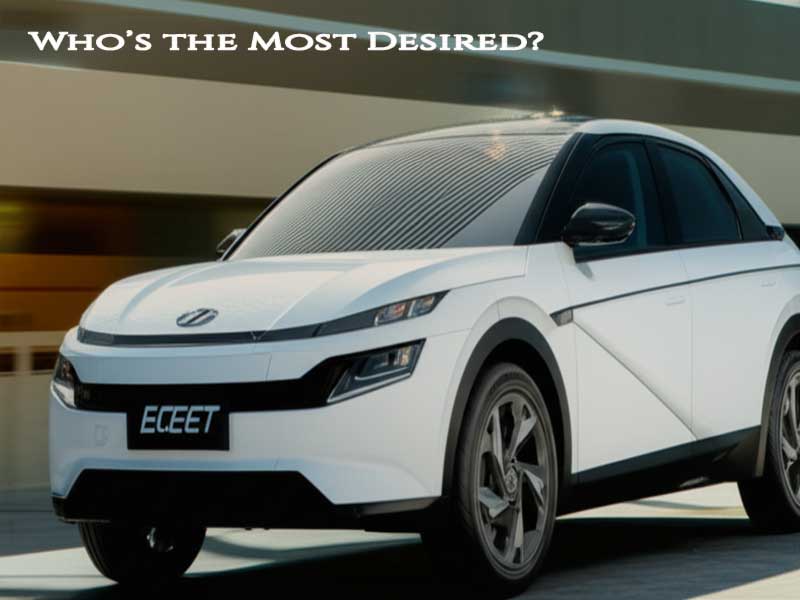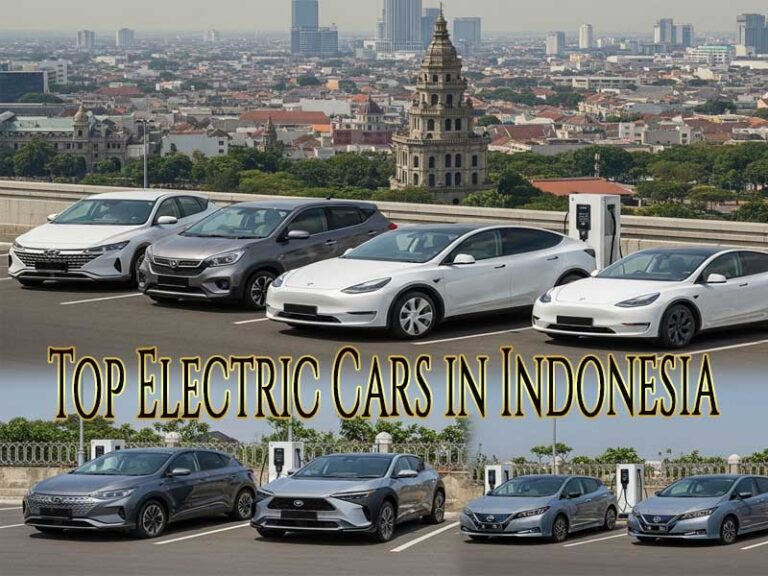Blogtubers – In 2025, electric vehicles (EVs) are no longer niche—they are the future. As eco-awareness and fuel efficiency become priority concerns for modern consumers, Top Electric Cars in Indonesia are now dominating conversations in automotive circles. With government incentives, expanding charging infrastructure, and consumer demand peaking, many global and local manufacturers are racing to win over the Indonesian market.
From compact city EVs to high-performance electric SUVs, the 2025 lineup is packed with impressive options. But which model is the most desired? Let’s explore the market’s top contenders, what sets them apart, and what consumers should expect in the electric era of mobility.

Why Top Electric Cars in Indonesia Are in High Demand
The Indonesian government is actively supporting electric vehicle adoption as part of its long-term vision to reduce carbon emissions and reliance on fossil fuels. Tax cuts, lower import duties, and subsidies have created a favorable environment for EV buyers.
According to a recent report by Blogtubers, the number of EV units sold in Indonesia doubled between 2023 and 2024—and 2025 is expected to continue this upward trend. With cities like Jakarta and Surabaya introducing more charging stations, the infrastructure is slowly but steadily keeping pace with demand.
Top Electric Cars in Indonesia: The Leading Contenders
Let’s look at the models that are making waves in 2025:
1. Hyundai Ioniq 5
Hyundai has established itself as a serious EV competitor in Indonesia. The Ioniq 5 combines futuristic design with powerful performance and fast-charging capability. The car’s 72.6 kWh battery offers up to 481 km of range, making it suitable for both urban and inter-city travel.
According to Blogtubers, the Ioniq 5 has one of the highest reservation rates among Indonesian consumers in 2025, thanks to its tech-forward features and eco-friendly materials.
Pros:
- Ultra-fast charging
- Spacious interior
- V2L (Vehicle-to-Load) functionality
2. Wuling Air EV
The Wuling Air EV has captured attention with its compact size and affordability. It’s designed for city dwellers who want an easy-to-park, efficient ride. While it may not compete on speed or range, its practicality and low maintenance cost make it a favorite among young professionals and first-time EV buyers.
Pros:
- Affordable price
- User-friendly dashboard
- Easy maneuverability
3. Tesla Model Y
Tesla entered the Indonesian market with a bang. The Model Y is a performance-based crossover EV packed with cutting-edge features, including Autopilot, fast acceleration, and over-the-air updates. While it carries a premium price tag, tech-savvy consumers who prioritize brand prestige are gravitating toward it.
Pros:
- Excellent driving range
- Advanced autopilot system
- Luxury interior and minimalist design
4. Toyota bZ4X
As Toyota’s first global EV under the “Beyond Zero” brand, the bZ4X offers reliability combined with bold design. With a driving range of approximately 500 km, it’s ideal for longer commutes. Toyota’s widespread service network also adds a layer of trust for buyers unsure about EV maintenance.
Pros:
- Long battery range
- Trusted brand reputation
- Rugged SUV styling
5. Nissan Leaf
The Leaf remains a strong player in the EV segment, offering comfort, decent range, and proven performance. Its e-Pedal system allows drivers to accelerate and brake with a single pedal, providing a unique driving experience. It’s a mid-range option that balances price, features, and usability.
Pros:
- Smooth driving experience
- Regenerative braking
- Proven global sales record
Read more: “From Gaza to Sudan: Global Militarism Undermines Human Rights“
Why Indonesians Are Making the Switch
There are several reasons why EVs are gaining popularity:
- Cost savings: EVs require less maintenance and offer lower per-kilometer fuel costs.
- Sustainability: Growing climate concerns are driving eco-conscious behavior.
- Modern design: EVs appeal to younger consumers with futuristic aesthetics and features.
- Government support: Tax relief and road access incentives for EV owners.
As noted in Blogtubers, public interest in sustainable living has become a lifestyle shift rather than a trend, especially among millennials and Gen Z buyers.
Charging Infrastructure and Ownership Experience
One key concern about EV adoption has been charging availability. However, Indonesia’s Ministry of Energy and Mineral Resources reported a significant rise in public charging stations in early 2025. Major malls, rest areas, and office buildings are installing EV chargers, making daily use more convenient.
Brands like Hyundai and Tesla offer home charging solutions as part of the purchase package, reducing range anxiety. Meanwhile, platforms like PLN’s Charge.IN mobile app help users locate nearby stations easily.
| Model | Starting Price (IDR) |
|---|---|
| Wuling Air EV | Rp 240 million |
| Hyundai Ioniq 5 | Rp 700 million |
| Tesla Model Y | Rp 1.5 billion |
| Toyota bZ4X | Rp 1 billion |
| Nissan Leaf | Rp 700 million |
Tax incentives can reduce these prices significantly for eligible buyers, especially for models with local assembly or components.
Who’s the Most Desired?
While it depends on the buyer profile, the Hyundai Ioniq 5 currently leads in terms of reservations, features, and value for money. However, the Wuling Air EV remains the go-to choice for budget-conscious urban drivers. On the premium end, the Tesla Model Y enjoys strong appeal among upper-class tech enthusiasts.
The final decision boils down to one’s lifestyle, budget, and mobility needs—but one thing is clear: the era of EVs in Indonesia is well underway.
The race to dominate the Top Electric Cars in Indonesia is more exciting than ever. With innovation speeding up and buyer preferences shifting toward sustainability and technology, EVs are no longer the future—they are the present. Whether you’re drawn to the minimalism of Tesla, the practicality of Wuling, or the innovation of Hyundai, 2025 is a defining year for electric mobility in the country.



